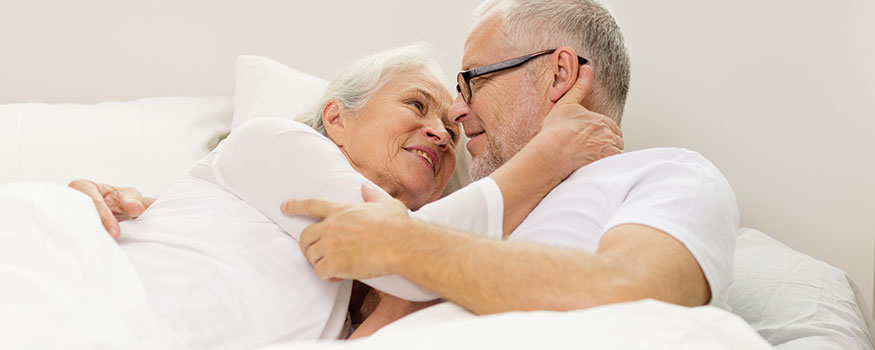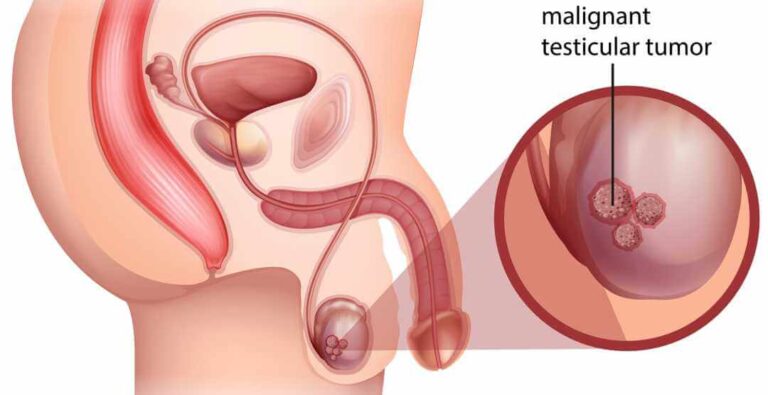Till What Age Can You Have Sex: The Truth About Sexuality and Aging

Table of Contents
Understanding the Impact of Aging on Sexual Health

As we age, it is natural for our bodies to undergo various changes, and this includes our sexual health. Many individuals may have concerns or questions about the impact of aging on their sexual well-being. It is important to understand that aging does not automatically mean a decline in sexual desire or satisfaction. In fact, studies have shown that over half of adults over the age of 60 report being sexually active and enjoying their intimate relationships.
Physical changes in sexual function are a common aspect of aging. For men, erectile dysfunction may become more prevalent due to factors such as reduced blood flow, hormonal changes, or underlying health conditions. Women may experience changes in vaginal lubrication and elasticity, which can affect sexual comfort and pleasure. However, it is crucial to remember that these changes are not inevitable and can often be managed through a combination of lifestyle adjustments, medical interventions, and open communication with partners.
References:
– Study on sexual activity in older adults: [insert citation]
– Research on the prevalence of erectile dysfunction in older men: [insert citation]
– Information on vaginal changes and sexual function in women: [insert citation]
Debunking Myths: Age Does Not Define Sexual Desire

Sexuality is a fundamental aspect of human life that can evolve and shift throughout various stages. One common misconception that needs debunking is the notion that age determines sexual desire. Contrary to popular belief, sexual desire is not solely dictated by the number of years one has lived. Research shows that there are various factors that influence sexual desire in individuals of all ages.
A study published in the Journal of Sexual Medicine found that age alone is not a reliable indicator of sexual desire. In fact, the study discovered that there were individuals in their 70s and 80s who reported high levels of sexual desire and satisfaction. Additionally, the study found that relationship satisfaction, physical and mental well-being, and overall quality of life were significant factors influencing sexual desire in older adults. This suggests that factors beyond age need to be considered when understanding an individual’s sexual desire. It is crucial to recognize that there is a wide range of diversity among older adults in terms of their sexual desires and needs.
Exploring the Physical Changes in Sexual Function with Age

As we age, our bodies go through various changes, and this includes our sexual function. It is important to understand and accept that these changes are a natural part of the aging process. While some individuals may experience a decline in sexual desire or function, others may not notice significant changes. Every person is unique, and there is no one-size-fits-all approach to sexual health in older adults.
One physical change that is commonly associated with aging is a decrease in the production of hormones such as testosterone and estrogen. These hormones play a key role in sexual desire and function. However, it is important to note that not all individuals will experience a decline in hormone levels, and those who do may still maintain a satisfying sex life. In fact, research has shown that factors such as overall health, emotional well-being, and the quality of the relationship can have a greater impact on sexual satisfaction than hormone levels alone. It is also worth mentioning that there are medical interventions available for individuals who may require hormone replacement therapy or other treatments to address specific concerns.
Navigating Menopause: How Hormonal Changes Affect Sexuality
Menopause is a natural phase in a woman’s life that occurs typically between the ages of 45 and 55. During this time, the ovaries gradually produce fewer reproductive hormones, leading to the cessation of menstruation. While menopause brings about significant hormonal changes, it also has a profound impact on a woman’s sexuality.
One of the primary hormones affected by menopause is estrogen. As estrogen levels decline, it can lead to various physical changes that can affect sexual health. These changes include vaginal dryness, decreased lubrication, and thinning of the vaginal walls. These factors can contribute to discomfort, pain, and even difficulty in engaging in sexual activity. Furthermore, the decrease in estrogen can also lead to a decrease in sexual desire or libido in some women. It is essential to understand that these changes are normal and can be managed effectively with the help of healthcare professionals.
Here’s a table-format discussion on navigating menopause and how hormonal changes affect sexuality:
| Aspect | Description |
|---|---|
| Menopausal Hormonal Changes | During menopause, declining estrogen levels lead to various physical and psychological changes that can affect sexuality. These changes may include vaginal dryness, decreased libido, mood swings, and hot flashes. |
| Communication | Open and honest communication with your partner about menopausal symptoms and their impact on sexuality is essential. Discussing concerns, desires, and exploring alternative ways of intimacy fosters understanding and support. |
| Self-Exploration | Engage in self-exploration to understand your changing body and sexual responses during menopause. Experiment with different forms of sexual stimulation, relaxation techniques, and lubricants to enhance comfort and pleasure. |
| Lubrication | Vaginal dryness is a common symptom of menopause that can affect sexual comfort and enjoyment. Using water-based lubricants or moisturizers can alleviate discomfort and enhance lubrication during sexual activity. |
| Hormone Replacement Therapy | Hormone replacement therapy (HRT) may be recommended to alleviate menopausal symptoms, including vaginal dryness and low libido. Discuss the benefits, risks, and alternatives of HRT with healthcare providers to make informed decisions. |
| Sexual Health Education | Educate yourself and your partner about menopause and its impact on sexual health. Seek information from reputable sources, books, healthcare professionals, or support groups to understand and address menopausal changes effectively. |
| Intimacy and Emotional Connection | Focus on intimacy and emotional connection with your partner beyond penetrative sex. Engage in sensual activities, affectionate gestures, and shared experiences to maintain closeness and satisfaction in your relationship during menopause. |
Addressing Erectile Dysfunction and Sexual Performance Concerns
Erectile dysfunction (ED) is a common condition that affects many older adults, but it is important to note that it is not an inevitable part of aging. While it is true that sexual function may change with age, there are effective treatments and strategies available to address ED and sexual performance concerns. It is essential to seek professional help, as gynecologists and urologists have expertise in diagnosing and treating these conditions.
There are various causes of ED, including physical, psychological, and lifestyle factors. Physical causes may include underlying medical conditions such as diabetes, hypertension, or cardiovascular disease. Psychological causes can range from stress and anxiety to relationship problems or depression. Additionally, certain lifestyle choices, such as smoking, excessive alcohol consumption, or a sedentary lifestyle, can contribute to the development or worsening of ED. It is crucial to understand that ED is often a multifactorial issue, and a comprehensive evaluation is necessary to determine the underlying causes and guide appropriate treatment strategies.
Treatment options for ED may vary depending on the individual’s circumstances, preferences, and underlying causes. Lifestyle modifications, such as regular exercise, a healthy diet, and stress management techniques, can have a positive impact on sexual function. Counseling or therapy may be beneficial for individuals experiencing psychological barriers, as addressing these underlying issues can play a crucial role in improving sexual performance. In some cases, medication, vacuum erection devices, or surgical interventions may be recommended. Treatments should always be tailored to the specific needs and medical history of the individual, ensuring safety and effectiveness.
ED and sexual performance concerns can have a profound impact on an individual’s well-being and relationships. It is essential to address these issues with compassion and empathy while providing evidence-based information about available treatment options. Seeking professional help and open communication with a healthcare provider are crucial steps toward regaining sexual confidence and maintaining a fulfilling sex life as one grows older. Remember, you are not alone, and there are resources and support available to help you navigate these challenges.
Promoting Emotional Intimacy in Older Adult Relationships
Emotional intimacy is a crucial aspect of any relationship, and this holds true for older adults as well. In fact, promoting emotional closeness becomes even more important as individuals age and face various challenges. Building and maintaining emotional intimacy in older adult relationships can foster a sense of connection, understanding, and fulfillment.
One way to foster emotional intimacy is through open and honest communication. This involves actively listening to your partner, expressing your desires and concerns, and being receptive to their needs. It’s important to create a safe space where both partners feel comfortable sharing their thoughts, feelings, and fears. By having open discussions and addressing any emotional barriers, couples can strengthen their emotional bond and enhance their overall relationship satisfaction. Additionally, expressing appreciation and gratitude for one another can go a long way in fostering emotional closeness. A simple “thank you” or a heartfelt compliment can help partners feel valued and loved.
Communication and Consent: Essential Aspects of Sexual Relationships at Any Age
Communication and consent are essential aspects of sexual relationships at any age. Open and honest communication can build trust, strengthen the emotional bond between partners, and ensure that both individuals are comfortable and satisfied in their intimate experiences. By discussing desires, boundaries, and expectations, couples can navigate potential challenges and make informed decisions about their sexual health.
Consent, on the other hand, is a crucial element of any sexual interaction. It involves clear and voluntary agreement from all parties involved, without coercion or manipulation. Consent should be enthusiastic, ongoing, and freely given. It is important for individuals to understand that consent can be withdrawn at any time, and that each person has the right to set their own boundaries and limits. By prioritizing consent in their sexual relationships, individuals can foster a culture of respect and empowerment, where everyone’s needs and wishes are acknowledged and valued.
Overall, effective communication and clear consent form the foundation of healthy and fulfilling sexual relationships, regardless of age. By fostering these aspects, individuals can create an environment of trust, understanding, and mutual satisfaction, enhancing their overall well-being and happiness.
The Importance of Sexual Health Education for Older Adults
Sexual health education is crucial for individuals of all ages, and this includes older adults. It is a topic that is often overlooked or neglected when it comes to older populations, but it is just as important as ever. Many older adults may have questions or concerns about their sexual health, and they deserve access to accurate and reliable information. By providing comprehensive sexual health education targeted specifically towards older adults, we can empower them to make informed decisions and maintain fulfilling sex lives.
One of the key reasons why sexual health education is vital for older adults is the prevalence of misconceptions and misunderstandings. As individuals age, there may be a decline in hormone levels, physical changes, or chronic health conditions that could impact their sexual function. However, it is essential to debunk the myth that age alone defines sexual desire. In fact, studies have shown that older adults can continue to experience a range of sexual interests and engage in sexual activity well into their later years. By providing education that addresses these misconceptions, we can promote a healthier and more positive view of sexuality among older adults.
Exploring Alternative Intimacy: Beyond Penetrative Sex
Engaging in sexual intimacy goes beyond the realm of penetrative sex. Exploring alternative forms of intimacy can not only provide pleasure and connection, but also offer a whole new dimension to one’s sex life. From sensual massages and intimate conversations to engaging in mutual exploration and using sex toys, there are various avenues to explore and discover intimacy beyond traditional sexual activities.
Research has shown that alternative forms of intimacy can be just as satisfying and fulfilling as penetrative sex. In fact, a study conducted by the University of Kentucky found that engaging in non-coital sexual behaviors such as kissing, touching, and caressing can significantly increase relationship satisfaction and overall sexual well-being.
By acknowledging that intimacy is not solely defined by the act of penetration, individuals can broaden their sexual horizons and discover new ways to experience pleasure and connection. Whether it’s through sensual touch, verbal communication, or the use of toys and accessories, exploring alternative intimacy can foster deeper levels of emotional and physical intimacy, enhancing overall sexual satisfaction and relationship fulfillment.
Managing Chronic Illness and Medication’s Impact on Sexual Function
Chronic illness and medication can often have a significant impact on sexual function, causing distress and frustration for individuals. It is important to recognize and understand these effects in order to address and manage them effectively.
One common chronic illness that can affect sexual function is diabetes. Both men and women with diabetes may experience difficulties with sexual desire, arousal, and orgasm. This can be attributed to factors such as nerve damage, hormonal imbalances, and circulatory problems. Additionally, certain medications used to treat diabetes, such as insulin, can have an impact on sexual function as well.
Another chronic illness that can impact sexual function is cardiovascular disease. Conditions such as high blood pressure and heart disease can lead to reduced blood flow to the genital area, making it harder to achieve and maintain an erection in men, and causing vaginal dryness and reduced sensitivity in women. Medications used to manage cardiovascular disease, such as beta blockers and diuretics, can also contribute to sexual difficulties.
If you are experiencing sexual problems as a result of chronic illness or medication, it is essential to seek help from healthcare professionals who can provide appropriate guidance and support. They can help identify the specific causes of your sexual difficulties and work with you to develop a comprehensive treatment plan that takes into consideration your chronic illness and medication regimen. Remember, you are not alone in facing these challenges, and there are solutions available to help you maintain a fulfilling sex life.
Overcoming Body Image Concerns and Embracing Self-Acceptance
Body image concerns can have a significant impact on a person’s sexual well-being, especially as they age. The natural physical changes that come with getting older can sometimes make individuals feel self-conscious or insecure about their appearance, leading to a decrease in sexual satisfaction and intimacy. However, it’s important to remember that our bodies change as we age, and embracing self-acceptance can play a vital role in overcoming these concerns.
One way to foster self-acceptance is by focusing on the aspects of ourselves that we appreciate and value. It can be helpful to shift our perspective from purely physical attributes to the unique qualities that make us who we are. Celebrating our bodies for their strength, resilience, and ability to experience pleasure can help us develop a more positive body image. Additionally, engaging in activities that make us feel good, such as regular exercise or enjoying hobbies, can boost self-confidence and promote a healthier mindset towards our bodies. Remember, embracing self-acceptance is a journey, and it’s essential to be patient and kind to ourselves along the way.
Seeking Support: Counseling and Therapeutic Options for Sexual Issues
Counseling and therapy can be valuable resources for individuals experiencing sexual issues, offering a safe and supportive environment to explore their concerns and find effective solutions. Whether it’s addressing performance anxiety, overcoming trauma, or managing relationship difficulties, seeking professional help can provide the necessary guidance and expertise tailored to one’s unique needs.
Professional counselors and therapists have specialized training in sexual health and can offer evidence-based interventions to address a wide range of concerns. Cognitive-behavioral therapy (CBT), for example, is commonly used to help individuals challenge negative thoughts and beliefs that may be impacting their sexual well-being. By identifying and reframing distorted thinking patterns, individuals can develop healthier attitudes towards themselves and sexual experiences.
In addition to talk therapy, other therapeutic options such as sex therapy may also be recommended. Sex therapists are specifically trained in addressing sexual concerns and can provide guidance on sexual techniques, communication, and intimacy. They can also help individuals explore alternative forms of sexual expression and navigate any physical or emotional barriers that may be present.
When considering counseling or therapy for sexual issues, it is important to choose a qualified professional who specializes in sexual health. The American Association of Sexuality Educators, Counselors, and Therapists (AASECT) provides a directory of certified sex therapists, ensuring that individuals can access reliable and trustworthy resources.
Safety and Sexual Health: Protecting Against STIs at Any Age
Sexually transmitted infections (STIs) can affect individuals of any age, and it is essential to prioritize sexual health and take measures to protect oneself against these infections. Regardless of age, practicing safe sex and being aware of the risks associated with unprotected sexual activities can help prevent the transmission of STIs and promote overall sexual well-being.
One of the most effective ways to protect against STIs is by consistently and correctly using barrier methods such as condoms during sexual intercourse. Condoms act as a physical barrier, preventing the exchange of bodily fluids between partners and reducing the risk of STI transmission. It is important to remember that condoms should be used for any sexual activity that may involve the exchange of bodily fluids, including vaginal, anal, and oral sex.
In addition to using barrier methods, it is crucial to get regular screenings for STIs, especially if you are sexually active with multiple partners or have recently engaged in unprotected sex. Early detection can lead to prompt treatment, reducing the risk of complications and further transmission. Consult with a healthcare professional or visit a sexual health clinic to discuss which tests are appropriate for you based on your sexual history and personal circumstances.
Engaging in open and honest communication with sexual partners about STI risks and testing is also crucial. This can help establish trust, ensure both partners are on the same page regarding protection, and foster a safe and responsible sexual environment. Lastly, it is important to stay informed about the most recent developments and recommendations in sexual health, as this knowledge can empower individuals to make well-informed decisions and maintain their sexual well-being at any age.
Nurturing Sexual Wellness: Self-Care Practices for Older Adults
As adults age, nurturing sexual wellness becomes increasingly important for overall health and well-being. Engaging in self-care practices can not only enhance sexual satisfaction but also contribute to a positive body image and bolster emotional intimacy. By incorporating these practices into their routines, older adults can promote sexual wellness and continue to enjoy fulfilling sexual relationships.
One essential self-care practice for nurturing sexual wellness is maintaining a healthy lifestyle. Regular exercise, a balanced diet, and managing stress can have a significant impact on sexual health. Engaging in physical activity improves circulation and stamina, leading to increased sexual arousal and performance. Additionally, a diet rich in nutrients, such as fruits, vegetables, and lean proteins, supports hormone production and cardiovascular health, both of which are crucial for sexual function. Managing stress through relaxation techniques, meditation, or seeking support from a counselor can also help alleviate anxiety and promote a healthier sexual response.
Another crucial aspect of nurturing sexual wellness is communication and education. Open and honest communication with sexual partners is essential for understanding desires, concerns, and preferences. Discussing sexual health and exploring new ways to maintain intimacy can lead to a more fulfilling sexual experience. Additionally, seeking education on sexual health topics, such as menopause, changes in sexual function, and alternative intimacy, can empower older adults to make informed decisions and address any challenges they may face.
Here’s a table-format discussion on nurturing sexual wellness through self-care practices for older adults:
| Aspect | Description |
|---|---|
| Communication | Open communication with your partner about sexual desires, concerns, and preferences fosters intimacy and strengthens the emotional connection. Discussing changes in sexual function due to aging promotes understanding and mutual support. |
| Physical Activity | Regular physical activity improves cardiovascular health, increases blood flow, and enhances stamina, contributing to overall sexual wellness. Engage in activities like walking, swimming, yoga, or strength training to support sexual health. |
| Healthy Lifestyle Choices | Adopting a healthy lifestyle, including a balanced diet, adequate hydration, sufficient sleep, and stress management, supports overall well-being and sexual function. Avoiding smoking, excessive alcohol, and recreational drugs promotes sexual health. |
| Sensual Exploration | Explore sensuality and intimacy through non-sexual touch, massage, cuddling, and other forms of affectionate gestures. Focus on connecting with your partner emotionally and physically, irrespective of sexual activity. |
| Sexual Health Education | Stay informed about sexual health, aging, and changes in sexual function. Seek reliable information from healthcare professionals, books, reputable websites, or support groups to address concerns and maintain sexual wellness with aging. |
| Medical Consultation | Consult with healthcare providers for regular check-ups and discussions about sexual health concerns. Addressing medical conditions, hormonal imbalances, or medication side effects that affect sexual function promotes overall sexual well-being. |
| Intimacy and Connection | Prioritize intimacy and connection with your partner beyond sexual activity. Engage in meaningful conversations, shared activities, and expressions of affection to strengthen the emotional bond and maintain sexual satisfaction as you age. |
Embracing Healthy Aging: Maintaining a Fulfilling Sex Life as You Grow Older
Maintaining a fulfilling sex life as you age is an important aspect of embracing healthy aging. Contrary to common belief, sexual desire does not diminish with age. In fact, many older adults continue to enjoy a satisfying and vibrant sex life well into their later years. Understanding the impact of aging on sexual health is crucial in order to navigate the physical and emotional changes that may arise.
Physiologically, it is natural for sexual function to evolve over time. In both men and women, there may be a decrease in hormone production, which can affect libido and sexual response. However, these changes do not automatically result in a loss of sexual desire or pleasure. With open communication, exploration, and a willingness to adapt, older adults can continue to experience intimacy and satisfaction in their sexual relationships. It is important to debunk the myth that aging inherently means a decrease in sexual desire, as this can discourage individuals from seeking the necessary support and information to maintain a fulfilling sex life as they grow older.
Research shows that emotional intimacy is a key factor in maintaining a fulfilling sex life as we age. Building and nurturing emotional connections with our partners can enhance the quality of our sexual relationships. This can involve honest and open communication about desires, needs, and concerns, as well as engaging in activities that promote emotional closeness, such as spending quality time together and engaging in shared hobbies. By prioritizing emotional intimacy, older adults can cultivate a deeper sense of connection and improve their overall sexual satisfaction.
How does aging affect sexual health?
Aging can lead to physical changes in sexual function, such as decreased libido or erectile difficulties. However, it doesn’t necessarily mean a decline in sexual desire or satisfaction.
Are older adults less interested in sex?
No, age does not define sexual desire. Many older adults maintain a strong interest in sex and continue to have fulfilling sexual relationships.
How do hormonal changes during menopause affect sexuality?
Hormonal changes during menopause can cause symptoms like vaginal dryness and decreased libido. However, there are various treatments available to address these issues and restore sexual satisfaction.
What can be done to address erectile dysfunction and sexual performance concerns?
It’s important to consult a healthcare professional who can provide appropriate treatments for erectile dysfunction, such as medications, lifestyle changes, or counseling.
How can emotional intimacy be promoted in older adult relationships?
Building emotional intimacy involves effective communication, spending quality time together, and engaging in activities that foster emotional connection and closeness.
Why is sexual health education important for older adults?
Sexual health education helps older adults understand the changes they may experience and equips them with knowledge on how to maintain a healthy and fulfilling sex life.
What are alternative forms of intimacy beyond penetrative sex?
Alternative forms of intimacy can include sensual touching, cuddling, oral sex, or exploring new sexual activities that prioritize pleasure and connection.
How can chronic illness and medication impact sexual function?
Chronic illnesses and certain medications can affect sexual function. Discussing concerns with healthcare providers and exploring alternative treatments can help manage these impacts.
How can older adults overcome body image concerns and embrace self-acceptance?
Engaging in self-care practices, seeking therapy or counseling, and challenging societal beauty standards can support older adults in overcoming body image concerns and embracing self-acceptance.
What options are available for older adults seeking support for sexual issues?
Counseling and therapeutic options, such as sex therapy, can provide a safe and supportive environment for older adults to address and overcome sexual issues.
How can older adults protect themselves against STIs?
Practicing safe sex, using barrier methods like condoms, and getting regular STI testing can help protect against STIs at any age.
What are some self-care practices that promote sexual wellness in older adults?
Engaging in regular physical exercise, maintaining a healthy diet, getting enough sleep, and managing stress can contribute to overall sexual wellness in older adults.






